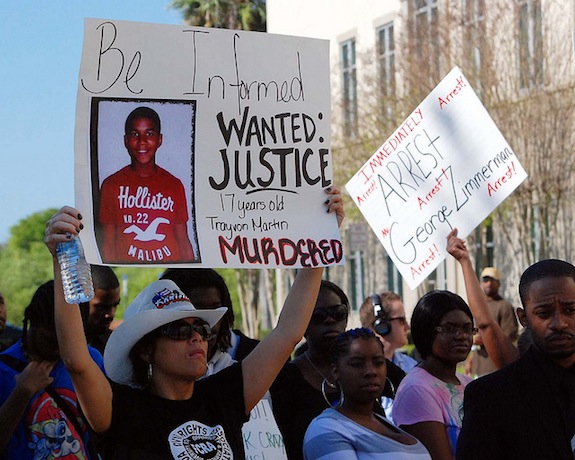
Rick Scott’s “stand your ground” task force wants to see changes to the law, not a repeal. (Photo by Werth Media/Flickr.)
By Ashley Lopez
Florida Center for Investigative Reporting
A year after the shooting of Trayvon Martin, a state task force examining Florida’s “stand your ground” law — which some allege was used to keep Martin’s shooter out of jail — have announced they will not recommend repealing the controversial law.
RelatedRead FCIR’s previous coverage of “stand your ground” and the Trayvon Martin shooting. |
On Feb. 26, 2012, Martin, 17, was staying with his father in Sanford when neighborhood watch volunteer George Zimmerman shot and killed him in a residential neighborhood. Martin was unarmed. Police reported that Zimmerman, who said he fired in self-defense, was released and didn’t face murder charges because of the law.
This shooting stirred national outrage. There were rallies and protests throughout the country, mostly from black communities, following news that Zimmerman would not be charged with a crime. However, a special prosecutor is now seeking a second-degree murder charge against Zimmerman.
The “stand your ground” task force, appointed by Gov. Rick Scott, was looking at possible problems with the Florida law.
The “stand your ground” law — which was passed in Florida in 2005 and permits people to use lethal force to defend themselves in public — has been adopted in nearly two dozen states. Typically, people are only allowed to use deadly force for self-defense in their homes. However, these laws allow people to defend themselves with such force in parks and out in the street if they feel threatened.
Democrats in the Florida Legislature have sought to repeal the law, as has Martin’s mother. Democratic legislators have filed bills for the upcoming Legislative session, which will begin in March.
Scott’s task force recommends only that some changes be made to “stand your ground.”
The task force made no attempt to judge the facts or circumstances of the Zimmerman case, but directed its recommendations to the Legislature. Its top finding was that “all persons who are conducting themselves in a lawful manner have a fundamental right to stand their ground and defend themselves from attack with proportionate force in every place they have a lawful right to be.”
The panel recommended that lawmakers examine the definition of “unlawful activity,” to clarify when people may not invoke the stand your ground defense. It also recommended that police, prosecutors, defense attorneys and courts “increase training and education” about the laws of self defense.
It further called for the Legislature to review regulation of neighborhood watch groups, to define their role as “observing, watching and reporting potential criminal activity to law enforcement.” In the Martin case, Zimmerman called 911 and in a recording of the call a dispatcher told him he should not leave his truck and pursue the person he saw.
The task force said the Florida Supreme Court made a ruling in 2010 on when a pretrial hearing is necessary for the stand your ground defense, and recommended that prosecutors and judges rely on that ruling in future cases.
Recent studies have concluded that states with “stand your ground” laws have higher homicide rates. Florida’s law passed at the behest of special interests, including the National Rifle Association and the American Legislative Exchange Council.
